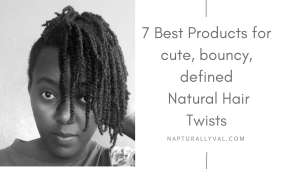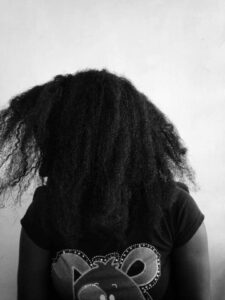Dealing with an itchy scalp can be one of the most annoying experiences, especially when you’re already spending time and effort caring for your 4C natural hair. The discomfort can make you want to scratch non-stop, potentially leading to scalp irritation, dandruff, and even breakage. If you’ve ever found yourself in this frustrating situation, you’re not alone, and thankfully, there are solutions!
An itchy scalp can be caused by several factors—dryness, product buildup, dandruff, or even scalp conditions like psoriasis. In this post, we’ll explore the causes of itchy scalp, how it affects those with 4C natural hair, and most importantly, how to prevent it so you can keep your scalp healthy and comfortable.
Feel like your hair has been the same length forever, I’ve an Ebook that will help you grow your hair healthier, longer and thicker. Grab your copy here… Also, check out all the Ebooks,guides and journals that will go a long way in your hair care journey here.
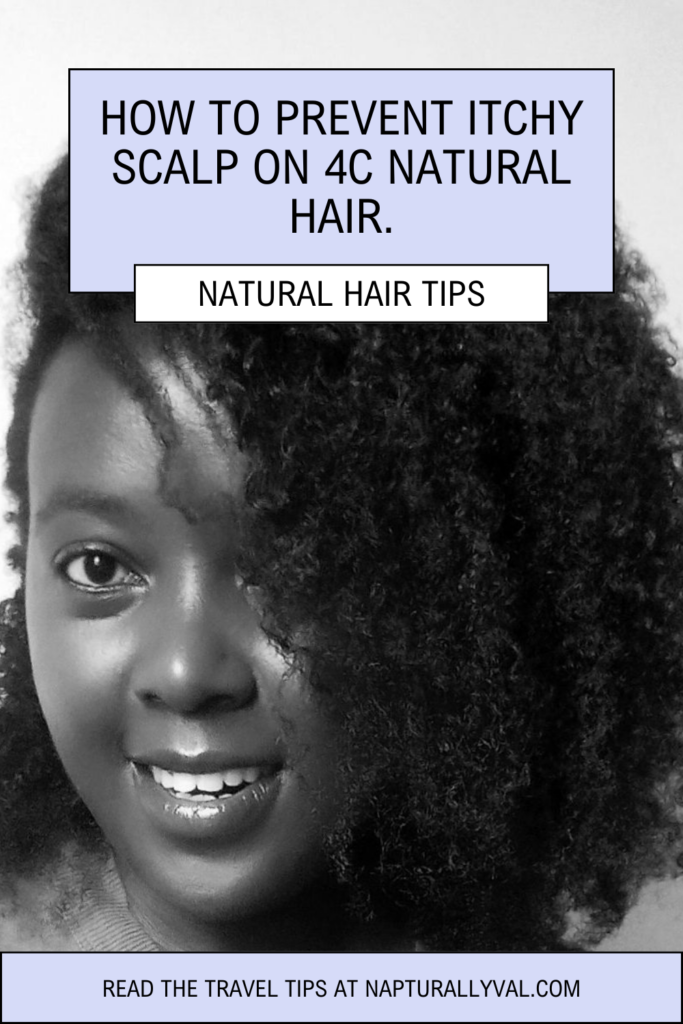
Table of Contents
Why Your 4C Scalp Itches & Exactly How to Prevent It
What Causes an Itchy Scalp?
Before we dive into the prevention methods, it’s important to understand what causes scalp itchiness in the first place. For those with 4C natural hair, which tends to be drier and more prone to product buildup, several factors could be at play.
- Dry Scalp: One of the leading causes of an itchy scalp is dryness. Because 4C hair is tightly coiled, the natural oils produced by your scalp (sebum) have a hard time traveling down the hair shaft, leaving both your hair and scalp feeling dry.
- Product Buildup: Many of us rely on heavy creams, oils, and gels to keep our 4C curls defined and moisturized. However, if these products aren’t thoroughly washed out, they can accumulate on your scalp, leading to irritation and itchiness.
- Dandruff and Fungal Growth: Dandruff, caused by the overgrowth of a fungus called Malassezia, is another common cause of an itchy scalp. This fungus feeds on the natural oils produced by your scalp and can multiply, leading to irritation, flakiness, and itching.
- Allergic Reactions to Products: Sometimes, your scalp might react to certain ingredients in hair products. Sulfates, silicones, and artificial fragrances are known irritants for many people, and using products that contain them can lead to itchiness and scalp discomfort.
- Tight Hairstyles: Wearing protective styles like braids, twists, or wigs is common in the 4C natural hair community. However, if these styles are done too tightly, they can put tension on your scalp and lead to itching, soreness, and even hair loss (traction alopecia).
- Scalp Conditions: Psoriasis, eczema, or seborrheic dermatitis are medical conditions that can affect your scalp, leading to persistent itchiness. If you suspect your scalp issues might be due to a medical condition, it’s a good idea to see a dermatologist for proper treatment.

How to Prevent Itchy Scalp
Now that we understand some common causes, let’s look at how you can prevent an itchy scalp.
Tip 1: Keep Your Scalp Moisturized
For those of us with 4C natural hair, moisture is everything—not just for our strands but for our scalp too. A dry scalp is one of the most common causes of itching, so keeping your scalp hydrated is key to preventing discomfort.
How to Keep Your Scalp Moisturized:
- Water-Based Spritz: Use a water-based leave-in conditioner or a hydrating hair mist. This helps hydrate your scalp and reduce dryness.
- Oiling Your Scalp: After moisturizing with a water-based product, seal the moisture in with lightweight natural oils like jojoba oil, grapeseed oil, or argan oil. These oils closely mimic your scalp’s natural sebum and help to lock in moisture.
- Scalp Creams: Products specifically formulated for scalp care, such as creams or serums containing shea butter or aloe vera, can help soothe and moisturize an itchy, dry scalp.
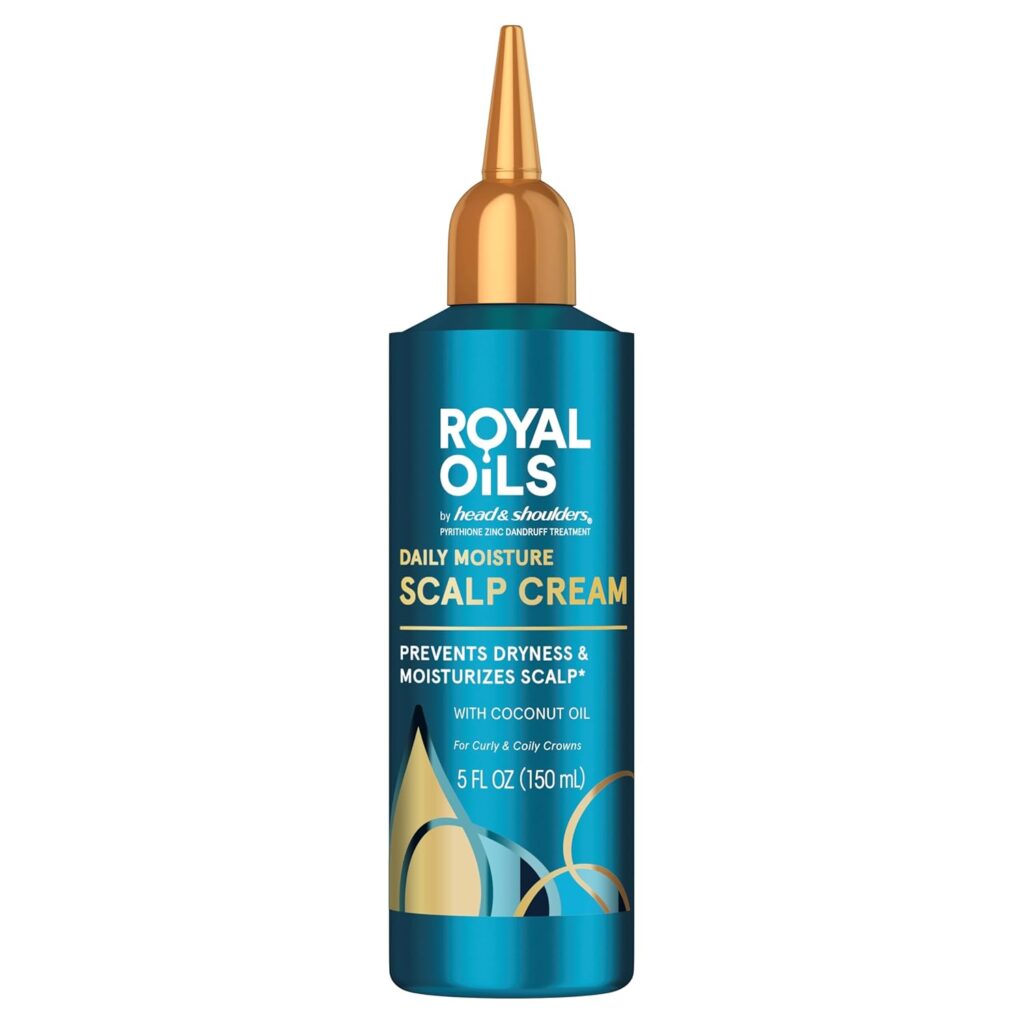
Recommended Products:
- As I Am Dry & Itchy Scalp Care Oil: Formulated to soothe and treat dryness and itchiness while promoting scalp health.
- Carol’s Daughter Goddess Strength 7 Oil Blend Scalp and Hair Oil: Our 7 Oil Scalp Oil and Hair Oil hydrates curly hair with moisture to help protect hair from breakage and split ends. Scalp feels moisturized and hair is stronger and healthy-looking with no weigh down after every use
Tip 2: Clarify Your Scalp Regularly
One of the main culprits of an itchy scalp is product buildup. Oils, creams, and gels can accumulate on your scalp over time, causing irritation and itchiness. To avoid this, it’s important to clarify your scalp regularly.
How to Clarify:
- Use a Clarifying Shampoo: Once a month or every 6-8 weeks, use a sulfate-free clarifying shampoo to deeply cleanse your scalp and remove any buildup. Look for shampoos that contain tea tree oil, peppermint, or apple cider vinegar, as these ingredients are known to soothe the scalp and reduce itchiness.
- Apple Cider Vinegar Rinse: If you prefer a more natural option, you can do an apple cider vinegar rinse after washing your hair. Mix one part apple cider vinegar with two parts water, and pour it over your scalp. Let it sit for a few minutes before rinsing it out. Apple cider vinegar helps balance the pH of your scalp and remove product buildup, reducing itchiness.
Recommended Clarifying Shampoos:
- Maui Moisture Scalp Care Clarifying Shampoo: This curly hair shampoo with refreshing scents of tea tree, spearmint & dewy eucalyptus contains a unique blend of aloe vera and coconut water that results in moisturized curls and a healthy-looking glow with every use
- Moroccanoil Clarifying Shampoo: This clarifying shampoo is perfect for natural hair and helps remove buildup while providing moisture.

Tip 3: Massage Your Scalp
Scalp massages are an excellent way to prevent itchiness and promote overall scalp health. They stimulate blood flow, distribute natural oils, and help remove any flakes or buildup that could be causing irritation.
- Use Your Fingertips: Gently massage your scalp in circular motions using the pads of your fingers. Start at the front of your hairline and work your way toward the nape of your neck. Do this for about 5-10 minutes a few times a week.
- Incorporate Essential Oils: For added benefits, try incorporating essential oils like peppermint, tea tree, or lavender into your scalp massages. These oils have antimicrobial properties and can help soothe irritation and reduce itchiness.
- Use a Scalp Massager: If you prefer, you can use a scalp massaging tool to make the process even more effective. These tools are designed to increase circulation and exfoliate your scalp without causing damage.
Recommended Tools:
- HEETA Scalp Massager: This handheld massager is perfect for stimulating your scalp and improving circulation.
- FREATECH Scalp Massager: Gentle spikes effectively scrub the scalp without scratching, which are flexible enough to move through the hair without tangling or pulling.
Tip 4: Choose the Right Products
The products you use on your hair can have a direct impact on the health of your scalp. If you’re prone to an itchy scalp, it’s important to choose products that are free from common irritants like sulfates, silicones, and parabens.
How to Choose the Right Products:
- Look for Sulfate-Free Options: Sulfates can strip your hair and scalp of natural oils, leading to dryness and itching. Opt for sulfate-free shampoos and conditioners to avoid this.
- Avoid Heavy Products on Your Scalp: While it’s fine to use heavier creams and oils on your hair, try to avoid applying them directly to your scalp. These products can clog your pores and cause buildup, leading to itchiness.
- Go Natural: Products that contain natural ingredients like aloe vera, tea tree oil, and witch hazel can help soothe an itchy scalp without causing further irritation.
Recommended Products:
- Eden BodyWorks Peppermint Tea Tree Oil: A soothing scalp treatment that helps relieve itchiness while promoting a healthy scalp.
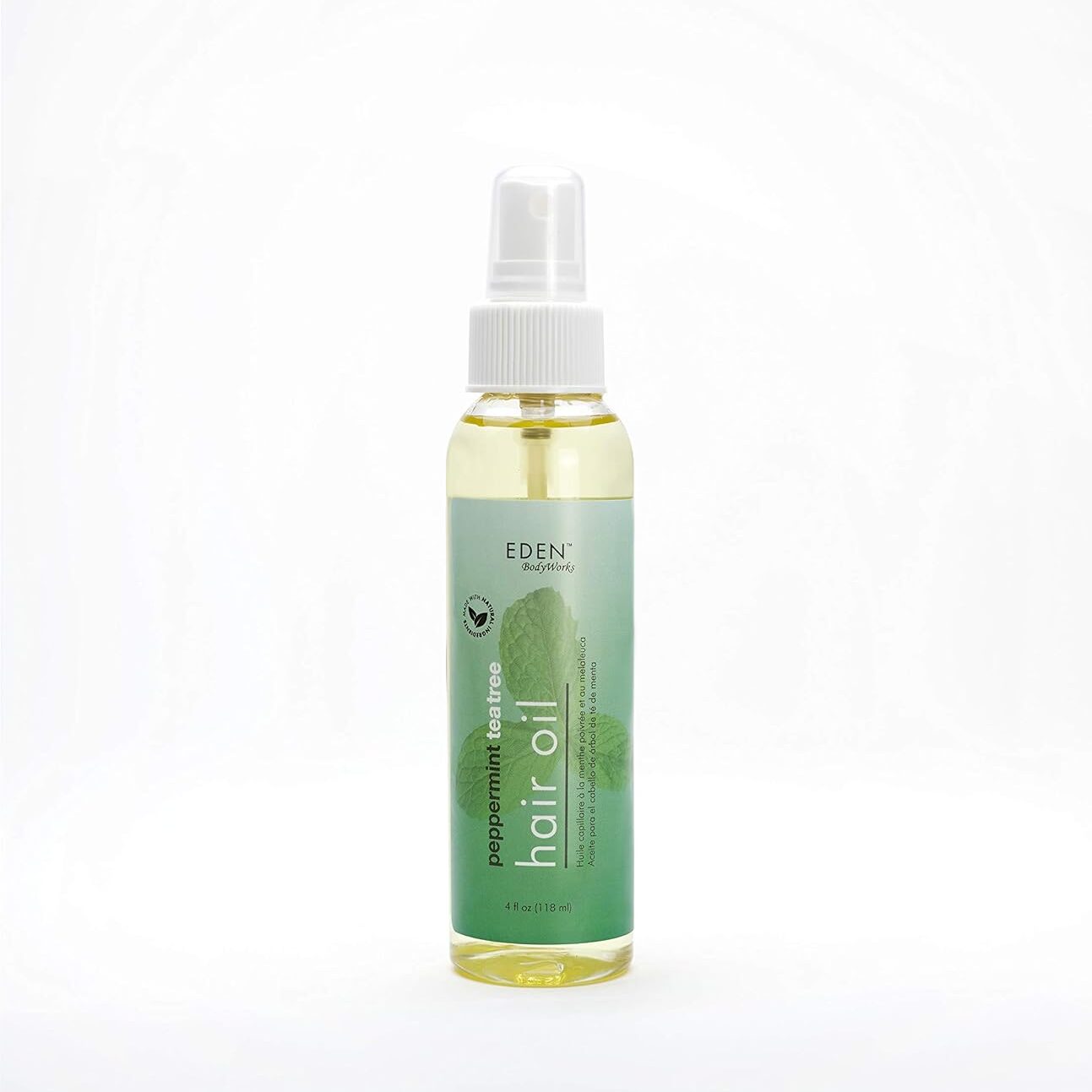
Tip 5: Protect Your Scalp from Tight Styles
Many 4C naturalistas love protective styles like braids, twists, and wigs. However, if these styles are done too tightly, they can put a lot of tension on your scalp, leading to irritation and itchiness.
How to Prevent Itchiness from Protective Styles:
- Avoid Tight Braids and Twists: Make sure your protective styles aren’t installed too tightly. If your scalp feels sore or tight, it can cause irritation and even lead to traction alopecia.
- Moisturize Your Scalp While in Protective Styles: Just because your hair is in a protective style doesn’t mean your scalp should be neglected. Use a light water-based spritz or oil to keep your scalp moisturized while your hair is in braids, twists, or under a wig.
- Cleanse Your Scalp: If you’re wearing a protective style for an extended period, make sure to cleanse your scalp with a diluted shampoo or a dry shampoo to remove any buildup that might occur.
Tip 6: Stay Hydrated and Eat a Balanced Diet
What you put inside your body can also have an effect on the health of your scalp. Dehydration and a poor diet can lead to a dry, flaky, and itchy scalp.
How to Support Scalp Health Through Diet:
- Drink Plenty of Water: Staying hydrated is essential for keeping your skin and scalp moisturized. Aim to drink at least 8 glasses of water a day.
- Eat a Balanced Diet: A diet rich in healthy fats (like omega-3s), vitamins (like vitamin E and B-vitamins), and minerals (like zinc) can support scalp health and prevent dryness and itching. Incorporate foods like avocados, nuts, seeds, and leafy greens into your diet for the best results.
An itchy scalp doesn’t have to be a constant struggle for those with 4C natural hair. By understanding the root causes and implementing the right care techniques, you can keep your scalp healthy, moisturized, and itch-free. From moisturizing your scalp regularly to using the right products and protective styles, these tips will help you prevent itchy scalp and maintain the overall health of your hair.
Remember, a healthy scalp is the foundation for beautiful, thriving 4C natural hair!

